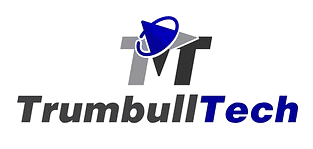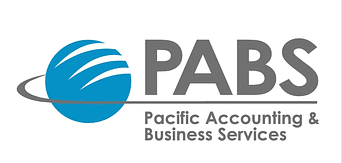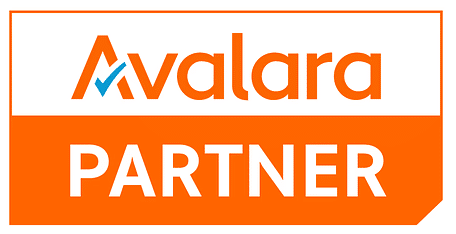Tax Saving Strategies for Small Businesses By End Of Year
As any small business grows, its tax liability does as well. Taking proactive steps to manage your tax situation can help avoid unexpected expenses that can make managing your business more stressful.
There are a variety of tax-saving strategies that small businesses can implement before the end of the year. These strategies reduce your overall tax burden and position your business for long-term success. Realizing these strategies mid-year isn’t too late, but it’s a good idea to start thinking about them now.
Make The Most Out of Your Deductions
It’s not easy operating any small business, and pitfalls can quickly take you under. One way to alleviate some of the financial burden may be by adding your children to the payroll. This decision may provide several benefits, such as:
- Tax Savings: Employing your children allows you to deduct their wages as a business expense and minimize paying federal taxes on the income they earn.
- Family Involvement: By involving your children in the business, they gain valuable experience and can learn essential skills for future career opportunities.
- Retirement Savings: Paying your children a salary allows them to contribute to a retirement plan, such as a Roth IRA, which can provide long-term financial benefits.
- Succession plan: Having your children on the payroll can also serve as a succession plan for your business, ensuring it stays within the family and continues to thrive for future generations.
Reduce Debts If Possible
Small companies might not even be aware of the amount of debt they’re racking up as the year starts to wind down. Some common reasons business owners go into debt during the year could include hiring more staff, purchasing new inventory, or expanding operations. While these are all important steps to growing your business, it’s crucial to keep an eye on your debt and make a plan for paying it down before the end of the year.
Prioritizing high-priority debts is critical first because you’ll want to satisfy payments that carry higher interest rates first. This will help reduce the overall cost of your debt over time and free up more cash flow for your business.
Pristine Record Keeping
There’s a lot to keep organized for any company, and keeping clean records is must. Failing to keep your information accurate can put you at higher risk at missing out on tax deductions, and can even cause issues with mixing tax deadlines.
To be safe, keep some of these records in your possession:
- Income and expense statements-
- Receipts for all business-related purchases
- Payroll records, including wages and taxes withheld
- Bank statements to reconcile transactions
- Any documentation related to loans and investments
- Legal agreements and contracts
- Employee payroll information and tax forms
- Invoices for goods or services provided by vendors
Maintaining pristine record keeping not only helps in tapping into available tax deductions, but it also lays the groundwork for informed decision-making as your business grows. An organized record system allows you to track financial performance, tracking margins to industry specific standards, identify spending patterns, and budget for future expenses.
Having accurate records readily available can significantly decrease the stress associated with tax season, as you won’t be scrambling to gather documents at the last minute in an effort to meet filing deadlines. Maintained records can provide essential insights during annual reviews, budget preparations, and as you strategize for the next fiscal year, ultimately paving the way for sustainable growth and operational efficiency.

Defer Income Or Accelerate Expenses
This can be somewhat of a tricky situation for smaller businesses to navigate because their timing may not align with that of larger corporations. However, if your business’s fiscal year ends at the same time as the calendar year, you can take advantage of some tax breaks by deferring income or accelerating expenses.
For example, if you know that your business is going to have a higher revenue month in January, you may want to consider deferring some of your invoices until the new year. This will reduce your tax burden for the current year and give you more cash flow to start off the next year. While this may be a challenge and be viewed as simply “kicking the proverbial tax can” down the road, it may be a vital strategy in maintaining healthy cash flows.
Conversely, if there are necessary expenses that you were planning on making early next year, it may be beneficial to accelerate those expenses before the end of this tax year. This can help reduce your taxable income for the current year and potentially save you money in taxes.
Take Advantage Of Equipment Expenses
Nearly any business you’re involved with requires equipment to run efficiently. Some of these items include printers, office furniture, machinery, or any other supplies necessary for daily operation. Many of these “high ticket” items are now subject to special depreciation rules which in some cases allow for a 100% deduction of the costs of purchasing this equipment.
To take advantage of this deduction, make sure that you purchase your equipment before the end of the year and place it into use. If you have been planning on investing in new equipment for your business, now is a perfect time to so can reduce your taxable income and save money on taxes.
Plan Ahead For Next Year
While you might be scrambling to get some tax saving tips for the end of the year, it’s also essential to plan ahead. Below are three key strategies you can implement now to have a smooth transition into the following year.
- Create a budget and set financial goals: As you move into the new year, take the time to outline your financial objectives. Define both short-term and long-term goals that align with your business vision. This could include increasing revenue by a specific percentage, reducing operating costs, or investing in new technology. Having concrete goals helps you maintain focus and provides a framework for making strategic decisions. Having a budget is like using a GPS, it sets the course for where your business is going.
- Review Last Year’s Performance: Conducting a thorough review of the past year’s financial performance can provide valuable insights. Analyze your income statements, balance sheets, and cash flow statements to identify trends, successes, best in class margins and areas for improvement. Understanding what worked and what didn’t will inform your strategies moving forward.
- Invest in Professional Development: Encouraging yourself and your employees to engage in training and development opportunities can yield significant returns. Consider workshops, courses, or seminars that enhance skills relevant to your business operations or market changes. An educated team is better equipped to adapt and drive growth, making this an investment in your company’s future success.

The Final Tax Saving Strategy Before Year's End: Hire An Expert To Help
At Flexkeeper, we empower small businesses to help with administrative and accounting support so you can focus on growing your business. Our expert team specializes in providing customized solutions to fit the unique needs of your business and can help with tax planning, record-keeping, and other financial services. We are a full service accounting business who take great pride in our approach to assisting our clients in proper presentation of their financials.
As we approach the end of the year, it’s crucial to ensure that your finances are in order, taking advantage of any available tax breaks, and laying a foundation for success in the new year. With our support and guidance, you can confidently navigate through tax season and set your business up for continued growth and success. Contact us today to learn more about how we can assist you with all your financial needs!










